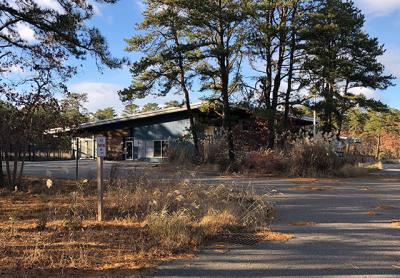Town May Buy C.D.C.H. for Bargain Price

East Hampton Town has an opportunity to purchase and repurpose the building on Stephen Hand’s Path in East Hampton that housed the Child Development Center of the Hamptons, which closed in 2016, the town’s attorney told the town board at its Nov. 20 meeting.
Michael Sendlenski said that the town could reach an agreement to cancel the lease it signed with the C.D.C.H., initially set for 30 years and scheduled to expire in 2032, and purchase the building for $800,000, less than a third of a recent $2.6 million appraisal. The lease restricts the building’s use to a school for special-needs children.
The school, which was managed by the nonprofit organization Family Residences and Essential Enterprises, or FREE, had unsuccessfully sought a subtenant to take over operation of the building, Mr. Sendlenski told the board. “As a result of them being unsuccessful, they have run into some financial difficulties whereby the mortgage that currently exists on the property is becoming close to or is in default with their lender.”
The town owns the land at 110 Stephen Hand’s Path. An agreement is in place whereby the town could purchase the building, thus terminating the lease and giving it ownership of both the structure and the property, Mr. Sendlenski said.
The goal would be to issue a request for proposals to nonprofit and public-benefit organizations, with the chosen respondent, or respondents, taking on management of the building on the town’s behalf, he said.
The school property is part of 30 acres owned by the town that also contain heavily used soccer fields and volleyball courts where youth and adult leagues play.
Such a move would align with the town’s policy to secure public-private partnerships with not-for-profit groups for unused buildings, said Supervisor Peter Van Scoyoc, to defray management and maintenance costs “and secure the asset for the public benefit.”
Councilwoman Kathee Burke-Gonzalez asked what would happen if the town does not purchase the building. “At some point it’s going to be foreclosed on, most likely,” Mr. Sendlenski said. “The bank will start looking for a tenant, and will probably start challenging the provision in the lease and claim ing it’s overly restrictive in that it limits use of the premises to a school for special-needs children.”
A purchase, Mr. Van Scoyoc said, “would be a way to amicably settle the bank’s position.” The building could become a community center, he said. “I completely support moving ahead with this. I think it will be a great asset to the town.” His colleagues agreed.
The town had considered moving its senior citizens center into the building from its present location on Springs-Fireplace Road, but town officials concluded that it would require substantial reorganization and improvement for a use other than a school, Mr. Sendlenski said. Older residents who used the current center also raised concerns about the location of the C.D.C.H. building. The proposal was abandoned, and the town is planning to construct a new senior citizens center at its present location.
The board agreed to prepare a bond resolution for the purchase, to be voted on at its meeting next Thursday.
C.D.C.H. opened as a charter school in 2001, after launching in 1997 as a program for a small group of toddlers in a parent’s house. It provided regular and special education programs, drawing students from local school districts, which paid tuition.
Amid financial difficulties in 2016, C.D.C.H. was in talks with Gersh Academy, which runs private schools for autistic children, about a potential takeover, but that failed to materialize.
